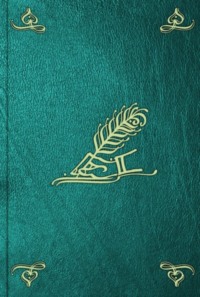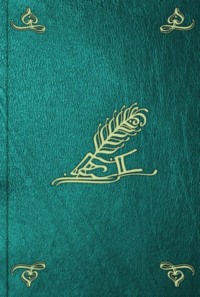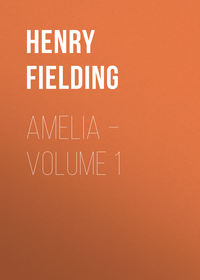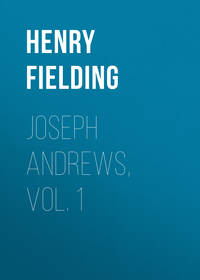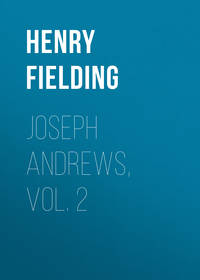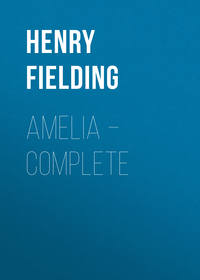 полная версия
полная версияThe History of the Life of the Late Mr. Jonathan Wild the Great
While they were thus discoursing, Mr. Snap, with a gentleman who followed him, introduced Mr. Bagshot into the company. It seems Mr. Bagshot, immediately after his separation from Mr. Wild, returned to the gaming-table, where having trusted to fortune that treasure which he had procured by his industry, the faithless goddess committed a breach of trust, and sent Mr. Bagshot away with as empty pockets as are to be found in any laced coat in the kingdom. Now, as that gentleman was walking to a certain reputable house or shed in Convent-garden market he fortuned to meet with Mr. Snap, who had just returned from conveying the count to his lodgings, and was then walking to and fro before the gaming-house door; for you are to know, my good reader, if you have never been a man of wit and pleasure about town, that, as the voracious pike lieth snug under some weed before the mouth of any of those little streams which discharge themselves into a large river, waiting for the small fry which issue thereout, so hourly, before the door or mouth of these gaming-houses, doth Mr. Snap, or some other gentleman of his occupation, attend the issuing forth of the small fry of young gentlemen, to whom they deliver little slips of parchment, containing invitations of the said gentlemen to their houses, together with one Mr. John Doe,[Footnote: This is a fictitious name which is put into every writ; for what purpose the lawyers best know.] a person whose company is in great request. Mr. Snap, among many others of these billets, happened to have one directed to Mr. Bagshot, being at the suit or solicitation of one Mrs. Anne Sample, spinster, at whose house the said Bagshot had lodged several months, and whence he had inadvertently departed without taking a formal leave, on which account Mrs. Anne had taken this method of SPEAKING WITH him.
Mr. Snap's house being now very full of good company, he was obliged to introduce Mr. Bagshot into the count's apartment, it being, as he said, the only chamber he had to LOCK UP in. Mr. Wild no sooner saw his friend than he ran eagerly to embrace him, and immediately presented him to the count, who received him with great civility.
CHAPTER TWELVE
OTHER PARTICULARS RELATING TO MISS TISHY, WHICH PERHAPS MAY NOT GREATLY SURPRISE AFTER THE FORMER. THE DESCRIPTION OF A VERY FINE GENTLEMAN. AND A DIALOGUE BETWEEN WILD AND THE COUNT, IN WHICH PUBLIC VIRTUE IS JUST HINTED AT, WITH, ETCMr. Snap had turned the key a very few minutes before a servant of the family called Mr. Bagshot out of the room, telling him there was a person below who desired to speak with him; and this was no other than Miss Laetitia Snap, whose admirer Mr. Bagshot had long been, and in whose tender breast his passion had raised a more ardent flame than that which any of his rivals had been able to raise. Indeed, she was so extremely fond of this youth, that she often confessed to her female confidents, if she could ever have listened to the thought of living with any one man, Mr. Bagshot was he. Nor was she singular in this inclination, many other young ladies being her rivals in this matter, who had all the great and noble qualifications necessary to form a true gallant, and which nature is seldom so extremely bountiful as to indulge to any one person. We will endeavour, however, to describe them all with as much exactness as possible. He was then six feet high, had large calves, broad shoulders, a ruddy complexion, with brown curled hair, a modest assurance, and clean linen. He had indeed, it must be confessed, some small deficiencies to counterbalance these heroic qualities; for he was the silliest fellow in the world, could neither write nor read, nor had he a single grain or spark of honour, honesty, or good-nature, in his whole composition.
As soon as Mr. Bagshot had quitted the room the count, taking Wild by the hand, told him he had something to communicate to him of very great importance. "I am very well convinced," said he, "that Bagshot is the person who robbed me." Wild started with great amazement at this discovery, and answered, with a most serious countenance, "I advise you to take care how you cast any such reflections on a man of Mr. Bagshot's nice honour, for I am certain he will not bear it." "D – n his honour!" quoth the enraged count; "nor can I bear being robbed; I will apply to a justice of peace." Wild replied, with great indignation, "Since you dare entertain such a suspicion against my friend, I will henceforth disclaim all acquaintance with you. Mr. Bagshot is a man of honour, and my friend, and consequently it is impossible he should be guilty of a bad action." He added much more to the same purpose, which had not the expected weight with the count; for the latter seemed still certain as to the person, and resolute in applying for justice, which, he said, he thought he owed to the public as well as to himself. Wild then changed his countenance into a kind of derision, and spoke as follows: "Suppose it should be possible that Mr. Bagshot had, in a frolic (for I will call it no other), taken this method of borrowing your money, what will you get by prosecuting him? Not your money again, for you hear he was stripped at the gaming-table (of which Bagshot had during their short confabulation informed them); you will get then an opportunity of being still more out of pocket by the prosecution. Another advantage you may promise yourself is the being blown up at every gaming-house in town, for that I will assure you of; and then much good may it do you to sit down with the satisfaction of having discharged what it seems you owe the public. I am ashamed of my own discernment when I mistook you for a great man. Would it not be better for you to receive part (perhaps all) of your money again by a wise concealment: for, however seedy [Footnote: Poor.] Mr. Bagshot may be now, if he hath really played this frolic with you, you may believe he will play it with others, and when he is in cash you may depend on a restoration; the law will be always in your power, and that is the last remedy which a brave or a wise man would resort to. Leave the affair therefore to me; I will examine Bagshot, and, if I find he hath played you this trick, I will engage my own honour you shall in the end be no loser." The count answered, "If I was sure to be no loser, Mr. Wild, I apprehend you have a better opinion of my understanding than to imagine I would prosecute a gentleman for the sake of the public. These are foolish words of course, which we learn a ridiculous habit of speaking, and will often break from us without any design or meaning. I assure you, all I desire is a reimbursement; and if I can by your means obtain that, the public may – ;" concluding with a phrase too coarse to be inserted in a history of this kind.
They were now informed that dinner was ready, and the company assembled below stairs, whither the reader may, if he please, attend these gentlemen.
There sat down at the table Mr. Snap, and the two Miss Snaps his daughters, Mr. Wild the elder, Mr. Wild the younger, the count, Mr. Bagshot, and a grave gentleman who had formerly had the honour of carrying arms in a regiment of foot, and who was now engaged in the office (perhaps a more profitable one) of assisting or following Mr. Snap in the execution of the laws of his country.
Nothing very remarkable passed at dinner. The conversation (as is usual in polite company) rolled chiefly on what they were then eating and what they had lately eaten. In this the military gentleman, who had served in Ireland, gave them a very particular account of a new manner of roasting potatoes, and others gave an account of other dishes. In short, an indifferent by-stander would have concluded from their discourse that they had all come into this world for no other purpose than to fill their bellies; and indeed, if this was not the chief, it is probable it was the most innocent design Nature had in their formation.
As soon as THE DISH was removed, and the ladies retired, the count proposed a game at hazard, which was immediately assented to by the whole company, and, the dice being immediately brought in, the count took up the box and demanded who would set him: to which no one made any answer, imagining perhaps the count's pockets to be more empty than they were; for, in reality, that gentleman (notwithstanding what he had heartily swore to Mr. Wild) had, since his arrival at Mr. Snap's, conveyed a piece of plate to pawn, by which means he had furnished himself with ten guineas. The count, therefore, perceiving this backwardness in his friends, and probably somewhat guessing at the cause of it, took the said guineas out of his pocket, and threw them on the table; when lo, (such is the force of example) all the rest began to produce their funds, and immediately, a considerable sum glittering in their eyes, the game began.
CHAPTER THIRTEEN
A CHAPTER OF WHICH WE ARE EXTREMELY VAIN, AND WHICH INDEED WE LOOK ON AS OUR CHEF-D'OEUVRE; CONTAINING A WONDERFUL STORY CONCERNING THE DEVIL, AND AS NICE A SCENE OF HONOUR AS EVER HAPPENEDMy reader, I believe, even if he be a gamester, would not thank me for an exact relation of every man's success; let it suffice then that they played till the whole money vanished from the table. Whether the devil himself carried it away, as some suspected, I will not determine; but very surprising it was that every person protested he had lost, nor could any one guess who, unless THE DEVIL, had won.
But though very probable it is that this arch fiend had some share in the booty, it is likely he had not all; Mr. Bagshot being imagined to be a considerable winner, notwithstanding his assertions to the contrary; for he was seen by several to convey money often into his pocket; and what is still a little stronger presumption is, that the grave gentleman whom we have mentioned to have served his country in two honourable capacities, not being willing to trust alone to the evidence of his eyes, had frequently dived into the said Bagshot's pocket, whence (as he tells us in the apology for his life afterwards published [Footnote: Not in a book by itself, in imitation of some other such persons, but in the ordinary's account, &c., where all the apologies for the lives of rogues and whores which have been published within these twenty years should have been inserted.]), though he might extract a few pieces, he was very sensible he had left many behind. The gentleman had long indulged his curiosity in this way before Mr. Bagshot, in the heat of gaming, had perceived him; but, as Bagshot was now leaving off play, he discovered this ingenious feat of dexterity; upon which, leaping up from his chair in violent passion, he cried out, "I thought I had been among gentlemen and men of honour, but, d – n me, I find we have a pickpocket in company." The scandalous sound of this word extremely alarmed the whole board, nor did they all shew less surprise than the CONV – N (whose not sitting of late is much lamented) would express at hearing there was an atheist in the room; but it more particularly affected the gentleman at whom it was levelled, though it was not addressed to him. He likewise started from his chair, and, with a fierce countenance and accent, said, "Do you mean me? D – n your eyes, you are a rascal and a scoundrel!" Those words would have been immediately succeeded by blows had not the company interposed, and with strong arm withheld the two antagonists from each other. It was, however, a long time before they could be prevailed on to sit down; which being at last happily brought about, Mr. Wild the elder, who was a well-disposed old man, advised them to shake hands and be friends; but the gentleman who had received the first affront absolutely refused it, and swore HE WOULD HAVE THE VILLAIN'S BLOOD. Mr. Snap highly applauded the resolution, and affirmed that the affront was by no means to be put up by any who bore the name of a gentleman, and that unless his friend resented it properly he would never execute another warrant in his company; that he had always looked upon him as a man of honour, and doubted not but he would prove himself so; and that, if it was his own case, nothing should persuade him to put up such an affront without proper satisfaction. The count likewise spoke on the same side, and the parties themselves muttered several short sentences purporting their intentions. At last Mr. Wild, our hero, rising slowly from his seat, and having fixed the attention of all present, began as follows: "I have heard with infinite pleasure everything which the two gentlemen who spoke last have said with relation to honour, nor can any man possibly entertain a higher and nobler sense of that word, nor a greater esteem of its inestimable value, than myself. If we have no name to express it by in our Cant Dictionary, it were well to be wished we had. It is indeed the essential quality of a gentleman, and which no man who ever was great in the field or on the road (as others express it) can possibly be without. But alas! gentlemen, what pity is it that a word of such sovereign use and virtue should have so uncertain and various an application that scarce two people mean the same thing by it? Do not some by honour mean good-nature and humanity, which weak minds call virtues? How then! Must we deny it to the great, the brave, the noble; to the sackers of towns, the plunderers of provinces, and the conquerors of kingdoms! Were not these men of honour? and yet they scorn those pitiful qualities I have mentioned. Again, some few (or I am mistaken) include the idea of honesty in their honour. And shall we then say that no man who withholds from another what law, or justice perhaps, calls his own, or who greatly and boldly deprives him of such property, is a man of honour? Heaven forbid I should say so in this, or, indeed, in any other good company! Is honour truth? No; it is not in the lie's going from us, but in its coming to us, our honour is injured. Doth it then consist in what the vulgar call cardinal virtues? It would be an affront to your understandings to suppose it, since we see every day so many men of honour without any. In what then doth the word honour consist? Why, in itself alone. A man of honour is he that is called a man of honour; and while he is so called he so remains, and no longer. Think not anything a man commits can forfeit his honour. Look abroad into the world; the PRIG, while he flourishes, is a man of honour; when in gaol, at the bar, or the tree, he is so no longer. And why is this distinction? Not from his actions; for those are often as well known in his flourishing estate as they are afterwards; but because men, I mean those of his own party or gang, call him a man of honour in the former, and cease to call him so in the latter condition. Let us see then; how hath Mr. Bagshot injured the gentleman's honour? Why, he hath called him a pick-pocket; and that, probably, by a severe construction and a long roundabout way of reasoning, may seem a little to derogate from his honour, if considered in a very nice sense. Admitting it, therefore, for argument's sake, to be some small imputation on his honour, let Mr. Bagshot give him satisfaction; let him doubly and triply repair this oblique injury by directly asserting that he believes he is a man of honour." The gentleman answered he was content to refer it to Mr. Wild, and whatever satisfaction he thought sufficient he would accept. "Let him give me my money again first," said Bagshot, "and then I will call him a man of honour with all my heart." The gentleman then protested he had not any, which Snap seconded, declaring he had his eyes on him all the while; but Bagshot remained still unsatisfied, till Wild, rapping out a hearty oath, swore he had not taken a single farthing, adding that whoever asserted the contrary gave him the lie, and he would resent it. And now, such was the ascendancy of this great man, that Bagshot immediately acquiesced, and performed the ceremonies required: and thus, by the exquisite address of our hero, this quarrel, which had so fatal an aspect, and which between two persons so extremely jealous of their honour would most certainly have produced very dreadful consequences, was happily concluded.
Mr. Wild was indeed a little interested in this affair, as he himself had set the gentleman to work, and had received the greatest part of the booty: and as to Mr. Snap's deposition in his favour, it was the usual height to which the ardour of that worthy person's friendship too frequently hurried him. It was his constant maxim that he was a pitiful fellow who would stick at a little rapping [Footnote: Rapping is a cant word for perjury.] for his friend.
CHAPTER FOURTEEN
IN WHICH THE HISTORY OF GREATNESS IS CONTINUEDMatters being thus reconciled, and the gaming over, from reasons before hinted, the company proceeded to drink about with the utmost chearfulness and friendship; drinking healths, shaking hands, and professing the most perfect affection for each other. All which were not in the least interrupted by some designs which they then agitated in their minds, and which they intended to execute as soon as the liquor had prevailed over some of their understandings. Bagshot and the gentleman intending to rob each other; Mr. Snap and Mr. Wild the elder meditating what other creditors they could find out to charge the gentleman then in custody with; the count hoping to renew the play, and Wild, our hero, laying a design to put Bagshot out of the way, or, as the vulgar express it, to hang him with the first opportunity. But none of these great designs could at present be put in execution, for, Mr. Snap being soon after summoned abroad on business of great moment, which required likewise the assistance of Mr. Wild the elder and his other friend, and as he did not care to trust to the nimbleness of the count's heels, of which he had already had some experience, he declared he must LOCK UP for that evening. Here, reader, if them pleasest, as we are in no great haste, we will stop and make a simile. As when their lap is finished, the cautious huntsman to their kennel gathers the nimble-footed hounds, they with lank ears and tails slouch sullenly on, whilst he, with his whippers-in, follows close at their heels, regardless of their dogged humour, till, having seen them safe within the door, he turns the key, and then retires to whatever business or pleasure calls him thence; so with lowring countenance and reluctant steps mounted the count and Bagshot to their chamber, or rather kennel, whither they were attended by Snap and those who followed him, and where Snap, having seen them deposited, very contentedly locked the door and departed. And now, reader, we will, in imitation of the truly laudable custom of the world, leave these our good friends to deliver themselves as they can, and pursue the thriving fortunes of Wild, our hero, who, with that great aversion to satisfaction and content which is inseparably incident to great minds, began to enlarge his views with his prosperity: for this restless, amiable disposition, this noble avidity which increases with feeding, is the first principle or constituent quality of these our great men; to whom, in their passage on to greatness, it happens as to a traveller over the Alps, or, if this be a too far-fetched simile, to one who travels westward over the hills near Bath, where the simile was indeed made. He sees not the end of his journey at once; but, passing on from scheme to scheme, and from hill to hill, with noble constancy, resolving still to attain the summit on which he hath fixed his eve, however dirty the roads may be through which he struggles, he at length arrives – at some vile inn, where he finds no kind of entertainment nor conveniency for repose. I fancy, reader, if thou hast ever travelled in these roads, one part of my simile is sufficiently apparent (and, indeed, in all these illustrations, one side is generally much more apparent than the other); but, believe me, if the other doth not so evidently appear to thy satisfaction, it is from no other reason than because thou art unacquainted with these great men, and hast not had sufficient instruction, leisure, or opportunity, to consider what happens to those who pursue what is generally understood by GREATNESS: for surely, if thou hadst animadverted, not only on the many perils to which great men are daily liable while they are in their progress, but hadst discerned, as it were through a microscope (for it is invisible to the naked eye), that diminutive speck of happiness which they attain even in the consummation of their wishes, thou wouldst lament with me the unhappy fate of these great men, on whom nature hath set so superior a mark, that the rest of mankind are born for their use and emolument only, and be apt to cry out, "It is pity that THOSE for whose pleasure and profit mankind are to labour and sweat, to be hacked and hewed, to be pillaged, plundered, and every war destroyed, should reap so LITTLE advantage from all the miseries they occasion to others." For my part, I own myself of that humble kind of mortals who consider themselves born for the behoof of some great man or other, and could I behold his happiness carved out of the labour and ruin of a thousand such reptiles as myself I might with satisfaction exclaim, Sic, sic juvat: but when I behold one GREAT MAN starving with hunger and freezing with cold, in the midst of fifty thousand who are suffering the same evils for his diversion; when I see another, whose own mind is a more abject slave to his own greatness, and is more tortured and racked by it, than those of all his vassals; lastly, when I consider whole nations rooted out only to bring tears into the eyes of a GREAT MAN, not indeed because he hath extirpated so many, but because he had no more nations to extirpate, then truly I am almost inclined to wish that Nature had spared us this her MASTERPIECE, and that no GREAT MAN had ever been born into the world.
But to proceed with our history, which will, we hope, produce much better lessons, and more instructive, than any we can preach: Wild was no sooner retired to a night-cellar than he began to reflect on the sweets he had that day enjoyed from the labours of others, viz., first, from Mr. Bagshot, who had for his use robbed the count; and, secondly, from the gentleman, who, for the same good purpose, had picked the pocket of Bagshot. He then proceeded to reason thus with himself: "The art of policy is the art of multiplication, the degrees of greatness being constituted by those two little words MORE or LESS. Mankind are first properly to be considered under two grand divisions, those that use their own hands, and those who employ the hands of others. The former are the base and rabble; the latter, the genteel part of the creation. The mercantile part of the world, therefore, wisely use of the term EMPLOYING HANDS, and justly prefer each other as they employ more or fewer; for thus one merchant says he is greater than another because he employs more hands. And now indeed the merchant should seem to challenge some character of greatness, did we not necessarily come to a second division, viz., of those who employ hands for the use of the community in which they live, and of those who employ hands merely for their own use, without any regard to the benefit of society. Of the former sort are the yeoman, the manufacturer, the merchant, and perhaps the gentleman. The first of these being to manure and cultivate his native soil, and to employ hands to produce the fruits of the earth. The second being to improve them by employing hands likewise, and to produce from them those useful commodities which serve as well for the conveniences as necessaries of life. The third is to employ hands for the exportation of the redundance of our own commodities, and to exchange them with the redundances of foreign nations, that thus every soil and every climate may enjoy the fruits of the whole earth. The gentleman is, by employing hands, likewise to embellish his country with the improvement of art and sciences, with the making and executing good and wholesome laws for the preservation of property and the distribution of justice, and in several other manners to be useful to society. Now we come to the second part of this division, viz., of those who employ hands for their own use only; and this is that noble and great part who are generally distinguished into conquerors, absolute princes, statesmen, and prigs [Footnote: Thieves.]. Now all these differ from each other in greatness only – they employ MORE or FEWER hands. And Alexander the Great was only GREATER than a captain of one of the Tartarian or Arabian hordes, as he was at the head of a larger number. In what then is a single prig inferior to any other great man, but because he employs his own hands only; for he is not on that account to be levelled with the base and vulgar, because he employs his hands for his own use only. Now, suppose a prig had as many tools as any prime minister ever had, would he not be as great as any prime minister whatsoever? Undoubtedly he would. What then have I to do in the pursuit of greatness but to procure a gang, and to make the use of this gang centre in myself? This gang shall rob for me only, receiving very moderate rewards for their actions; out of this gang I will prefer to my favour the boldest and most iniquitous (as the vulgar express it); the rest I will, from time to time, as I see occasion, transport and hang at my pleasure; and thus (which I take to be the highest excellence of a prig) convert those laws which are made for the benefit and protection of society to my single use."


